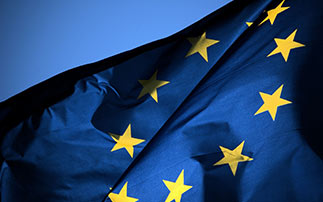There are 9 Outermost Regions in the European Union: Guadeloupe, French Guiana, Réunion, Martinique, Mayotte and Saint-Martin (France), the Azores and Madeira (Portugal) and the Canary Islands (Spain). The European Union has put in place specific measures to support these regions and alleviate the constraints resulting from their geographical remoteness.
These nine regions receive assistance from the Structural Funds. For the 2014-2020 programming period, almost 13 billion euros has been earmarked for them under the ERDF, ESF, EAFRD and EMFF.
As part of the European category of “least developed regions” on account of their level of economic development below 75% of the European average and their unemployment rate higher than the national average, the outermost regions benefit from co-financing rates of up to 85%, and a specific allocation to offset the additional costs linked to their remoteness is also included in the ERDF programmes.
Additional needs for the ORs due to the crisis
Soibahadine Ibrahim Ramadani, President of Mayotte Departmental Council and current President of the CPRUP, wrote to the European institutions about the extreme vulnerability of the Outermost Regions in the face of the health crisis and its economic and social repercussions. This initiative complements the mobilisation of the OR MEPs, who also signed a joint letter addressed to the Commissioner for Cohesion and Reforms, calling for the establishment of an exceptional support fund for the ORs.
Without waiting for the European Union answer, the territories have already mobilised and have taken advantage of the flexibility in the use of funds recently granted by the European Commission to launch initiatives against the epidemic and to anticipate the post-Covid-19 period. According to the regions, it has been decided to use European funds for the purchase of medical equipment, the support for local economy, investment in research, etc.
In concrete terms, what actions are being taken?
The Territorial Authority de Martinique, within the framework of the European Commission’s Coronavirus Response Investment Initiative (CRII), launched, on the 21st of April 2020, the call for proposals “Preserving the health of the people of Martinique – investing in medical and health equipment and materials”. The ESF financial envelope dedicated to this call is 20 million euros and the selected projects benefit from an average ESF co-financing rate of 75% in order to enable the purchase of health materials and equipment that can be used for the care and diagnosis of corona virus patients.
Another example of the use of European funds in the fight against covid-19 can be found in French Guyana. The “Flash Covid-19 Guyana” call for proposals aims to bring out projects in support of the development of solutions in the fields of research, innovation, social and digital technologies for fighting against COVID-19. Launched on the 22nd of April 2020, the call for projects has a budget of 3 million euros to support research.
Finally, Réunion is demonstrating another use of European funds by focusing on the prevention of the economic and social consequences of this health crisis on the region. Since the beginning of the crisis, the Regional Council has supported the local economic sector at a total cost of 1 197 064 euros including 540 625 euros coming from the ERDF. In addition, Priority number 3 “Improving the competitiveness of businesses” of the ERDF 2014-2020 Operational Programme will include two new action sheets “Exceptional support for businesses affected by the COVID 19 epidemic” with a creation and development strand.
The elected representatives are now hoping for an ambitious aid plan and the creation of a solidarity mechanism in favour of the ORs, in line with Article 349 of the TFEU, which defines European policy towards the ORs and takes account of their “structural economic and social situation” and their “remoteness, insularity, small size, difficult topography and climate, economic dependence on a few products”.
Valérie Buisine, Associate Director
Baptiste Richard, Assistant Counsel





